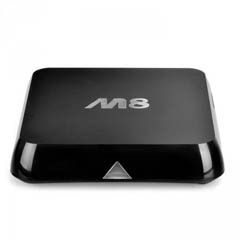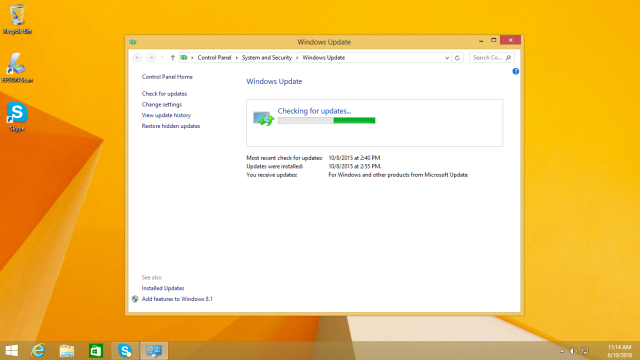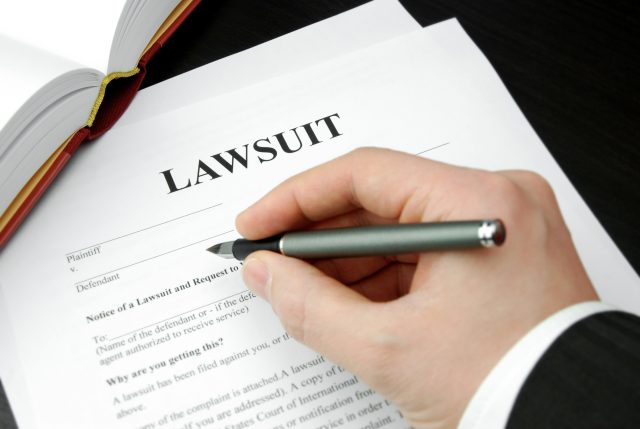The Federal Court in Canada has handed down a interlocutory injunction against distributors of Android-based set-top boxes configured for piracy. The devices, which are loaded with software including Kodi (with pirate addons) and Showbox, are now banned from sale pending a full trial.
Source: TF, for the latest info on copyright, file-sharing, torrent sites and ANONYMOUS VPN services.
 For years Internet piracy was the preserve of desktop machines running various flavors of peer-to-peer file-sharing software. Now, with viable computing available in devices as small as a phone, piracy is a do-anywhere affair.
For years Internet piracy was the preserve of desktop machines running various flavors of peer-to-peer file-sharing software. Now, with viable computing available in devices as small as a phone, piracy is a do-anywhere affair.
As a result it’s now common for people to stream media to their living room and for that purpose there are few more convenient solutions than an Android device. Whether phone, tablet, HDMI stick or set-top box, the Android platform can bring all the latest movies, TV shows and live sports to any living room, for little to no outlay.
This type of Internet piracy is thriving all around the world and has already resulted in arrests in the UK and civil actions elsewhere. The latest news comes out of Canada, where Bell Canada, Rogers Communications, Videotron and others are taking on several retailers of Android set-top boxes.
The broadcasters’ claims are relatively straightforward. As station operators they own the Canadian rights to a variety of TV shows. The defendants (ITVBOX.NET, My Electronics, Android Bros Inc., WatchNSaveNow Inc and MTLFreeTV) all sell devices that come ready configured with software designed to receive copyrighted content over the Internet.
The plaintiffs began their inquiries in April 2015 and in the year that followed purchased and tested the defendants’ products. They not only found that the devices provided access to their content for free, but also that the defendants advertised their products as a way to avoid paying cable bills.
Unsurprisingly the devices contained at least three sets of software – Kodi (along with the necessary infringing addons), the Popcorn Time-like Showbox application, plus tools to receive pirate subscription channels for a monthly fee.
As a result the TV companies went to court in an effort to obtain an interlocutory injunction to stop the devices being made available for sale. The plaintiffs made claims under both the Copyright Act and Radiocommunication Act, the latter due to the devices receiving “illegally decrypted programming”.
Describing pre-loaded set-top boxes as an “existential threat” to their businesses, the plaintiffs said that piracy and subsequent declining subscriptions are the main factors behind falling revenue. On this basis and as a deterrent to others supplying such devices, an injunction should be granted.
While the plaintiffs showed up in force, court documents reveal that only one defendant attended the hearing. Vincent Wesley of MTLFreeTV told the court that he had nothing to do with the development or maintenance of the installed software. The set-top boxes, he argued, are just pieces of hardware like a tablet or computer and have “substantial non-infringing uses.”
The court wasn’t convinced.
“The devices marketed, sold and programmed by the Defendants enable consumers to obtain unauthorized access to content for which the Plaintiffs own the copyright. This is not a case where the Defendants merely serve as the conduit, as was argued by Mr. Wesley,” Judge Daniele Tremblay-Lamer wrote in her order.
“Rather, they deliberately encourage consumers and potential clients to circumvent authorized ways of accessing content — say, by a cable subscription or by streaming content from the Plaintiffs’ websites — both in the manner in which they promote their business, and by offering tutorials in how to add and use applications which rely on illegally obtained content.”
As is often the case, the defendants’ marketing strategies appear set to haunt them. All imply infringing uses with descriptions such as “Original Cable Killer”, “Cancel cable today”, “Every Movie Ever Made”, “Every TV Show Ever Made” and “Live Sports and Events”.
Granting the interlocutory injunction, the judge said that other companies selling similar devices can be joined as parties to the injunction, should the plaintiffs identify them as defendants.
“This is not the first time a new technology has been alleged to violate copyright law, nor will it be the last. There are questions for the Court to resolve at trial rather than at this interlocutory stage,” the judge wrote.
“For the time being, I am satisfied that the Plaintiffs have established a strong prima facie case of copyright infringement and that an injunction would prevent irreparable harm without unduly inconveniencing the Defendants.”
A full trial will follow but from the evidence and defense presented thus far, it shouldn’t prove a difficult one for the broadcasters to win.
Source: TF, for the latest info on copyright, file-sharing, torrent sites and ANONYMOUS VPN services.









 Als Startup lässt sich Knuedge nicht bezeichnen, der Hermosa-Prozessor hingegen ist brandneu: Er besteht aus sehr vielen DSPs, die gemeinsam als ein Chip rechnen. Noch spannender ist das Fabric, was Massen an Hermosa für Deep Learning verknüpfen soll. (
Als Startup lässt sich Knuedge nicht bezeichnen, der Hermosa-Prozessor hingegen ist brandneu: Er besteht aus sehr vielen DSPs, die gemeinsam als ein Chip rechnen. Noch spannender ist das Fabric, was Massen an Hermosa für Deep Learning verknüpfen soll. (